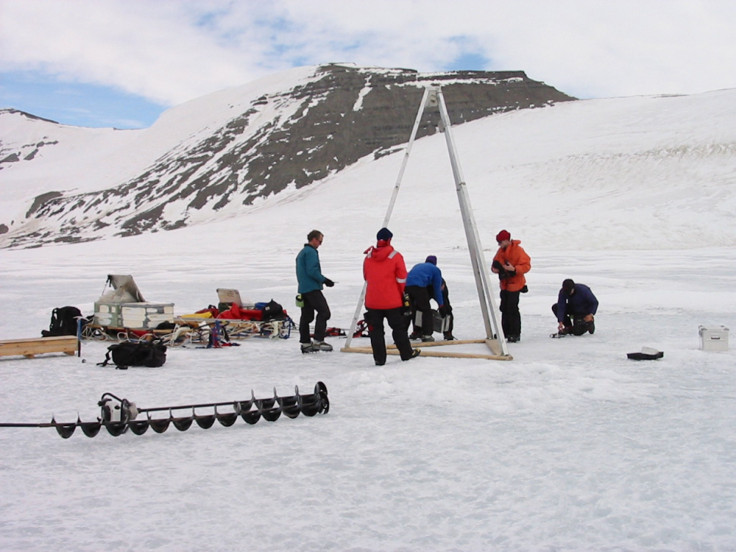Scientists Uncover Nearly 100,000-Year-Old Microbes In Antarctic Lake [PHOTO]

In one of the most desolate places on Earth, scientists have uncovered microbes that are nearly 100,000 years old.
The discovery under the ice of Lake Hodgson on the Antarctic Peninsula was made after researchers drilled to the bottom of the lake. The extreme life forms may help scientists understand how life can survive in harsh environments, LiveScience reports.
“This is the first time microbes have been identified living in the sediments of a subglacial Antarctic lake and indicates that life can exist and potentially thrive in environments we would consider too extreme,” study author David Pearce said in a statement.
Scientists from the British Antarctic Survey drilled through the ice that was roughly 305 feet deep. They collected sediment from the lake floor and were surprised to find DNA of microbes.
“The top few centimeters of the drill core contained current and recent organisms which inhabit the lake, but once the core reached 3.2 meters deep, the microbes found most likely date back nearly 100,000 years,” a BAS spokesman said.
The results published in the journal Diversity describe how scientists grew 20 cultures of microbes found in the upmost layer of Lake Hodgson’s sediment core. Some of the microbes found belonged to fossil DNA, others included a range of extremophiles -- species adapted to the most extreme environments. While some came from the most ancient organisms known on Earth, 23 percent were “unidentified bacterium.”
Lake Hodgson is one of Antarctica's nearly 380 subglacial lakes that different teams of scientists have taken samples of to see whether bacteria exist below. Recently, scientists collected life forms 2,625 feet below in Lake Whillans. The discovery there and the latest one in Lake Hodgson may reveal what life (if it exists) is like on celestial objects.
"The conditions faced by organisms in Lake Whillans are quite parallel to what we think it would be like on those icy moons," Brent Christner, team member for the Lake Whillans expedition, told National Geographic.
Pearce agrees. “The fact these organisms have survived in such a unique environment could mean they have developed in unique ways which could lead to exciting discoveries for us. This is the early stage and we now need to do more work to further investigate these life forms,” he said.
© Copyright IBTimes 2025. All rights reserved.






















